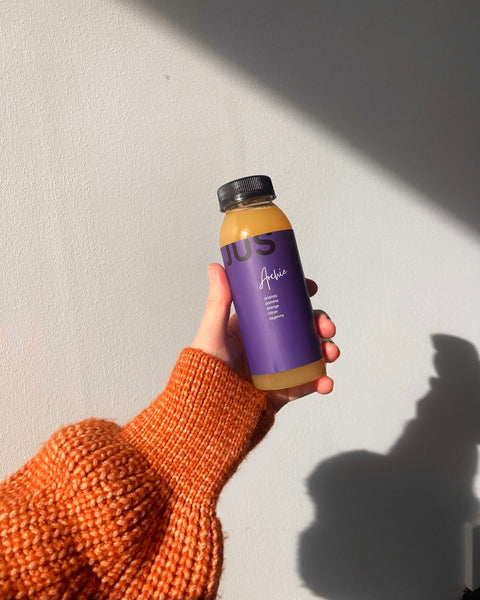

Cold pressed juice has surged in popularity among health enthusiasts and casual consumers alike, celebrated for its high nutrient content and associated health benefits. But what exactly sets cold pressed juice apart from traditional juicing methods, and how does it impact our health? This blog delves into the science behind cold pressed juice, focusing on its nutrient profile, enzyme content, and the health benefits it offers.
Understanding Cold Pressed Juice
Cold pressed juice is made using a hydraulic press that applies thousands of pounds of pressure to extract the maximum amount of liquid from fresh fruits and vegetables. Unlike traditional centrifugal juicers, this method does not produce heat, which can degrade the nutritional quality of the juice.
Nutrient Retention
The primary advantage of cold pressing is its ability to preserve nutrients:
- Vitamins and Minerals: Cold pressed juices are rich in vitamins and minerals because the process minimizes heat and oxidation, preserving the delicate compounds found in fruits and vegetables. For instance, Vitamin C, known for its antioxidant properties and role in immune function, is better retained in cold pressed juices.
- Phytonutrients: These are bioactive compounds that plants produce to protect themselves, and they have significant health benefits for humans. Cold pressing effectively retains phytonutrients like beta-carotene, lycopene, and flavonoids, which are known for their anti-inflammatory and antioxidant effects.
Enzyme Preservation
Enzymes are biological molecules that significantly speed up the rate of virtually all of the chemical reactions that take place within cells. They are vital for digestion and metabolic processes:
- Natural Enzymes: Fruits and vegetables are rich in natural enzymes that aid in the breakdown and absorption of nutrients. Cold pressed juicing preserves these enzymes by avoiding the heat generated by centrifugal juicers, which can denature (or break down) these beneficial proteins.
- Digestive Health: The preservation of natural enzymes in cold pressed juice can aid in digestion and help ensure that the body assimilates more of the nutrients from the juice.
Health Benefits
The nutritional advantages of cold pressed juice translate into several health benefits:
- Improved Nutrient Absorption: The lack of insoluble fiber in juice means that the vitamins, minerals, and phytonutrients it contains are more readily absorbed by the body. This can be particularly beneficial for individuals with certain digestive issues that may hinder nutrient absorption.
- Antioxidant Protection: Cold pressed juices are high in antioxidants, which protect the body from oxidative stress and may reduce the risk of chronic diseases such as heart disease, diabetes, and cancer.
- Hydration and Detoxification: The high water content of cold pressed juice helps maintain hydration. Additionally, the concentration of beneficial compounds can support the body's natural detoxification processes, aiding in liver function and the elimination of toxins.
- Immune System Support: The concentration of vitamins, such as vitamin C and vitamin A, along with minerals and phytonutrients, can bolster the immune system, helping the body to fend off infections and illnesses.





